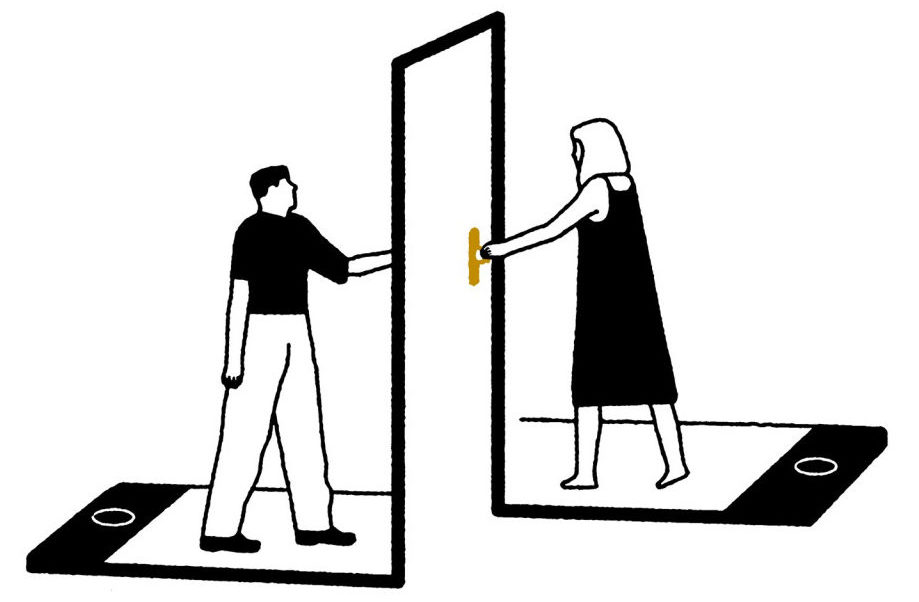post by Vincent Bryce (2019 cohort)
This is a brief reflection on the part-time, virtual internship I carried out as part of my first year at the Horizon CDT, with Orbit RRI. ORBIT, the Observatory for Responsible Research and Innovation in ICT is a spin-out company of Oxford and De Montfort Universities resulting from an EPSRC project, and aims to promote a culture of responsible research and innovation in information and communications technology and other areas of technology, research and innovation.

As a mature student, a virtual internship with a virtual organisation provided an interesting opportunity to reflect on the question, ‘what is an internship?’, by contrast to internships I had carried out earlier in my career, including in the Royal Navy (as an officer cadet) and in the investment bank JPMorganChase. As a Human Resources practitioner, it was also an opportunity to experience life as a ‘virtual new starter’, in common with an increasing number of employees who have been prevented by lockdown from meeting colleagues in person in the office.
The Cambridge Dictionary suggests, for ‘internship’
a period of time during which someone works for a company or organization in order to get experience of a particular type of work
Merriam-Webster gives us the following, for ‘intern’
an advanced student or graduate usually in a professional field (such as medicine or teaching) gaining supervised practical experience (as in a hospital or classroom)
The OED gives us, variously
A student or trainee (originally, a trainee teacher) working, sometimes without pay, in order to gain practical experience in a particular field of employment, or to satisfy requirements for a qualification.
Of or situated on the inside
Of or belonging to the inner nature of something; intrinsic, essential
Which of these best describes the experience, and just how intrinsic and valuable an internship ends up being, will often depend on the terms we can establish with the organisation (with the help of the CDT)!
As is often the case with internships, a project gave mine focus – in this case, a study into the potential effect of ‘RRI intensity level’ (a combination of Technology Readiness Level and relevance to the UN Sustainable Development Goals), based on original Orbit research and its increasingly widely used self-assessment tool. This was an interesting area for study that aligned helpfully with my PhD – should organisations consider different responsible innovation practices for different situations, depending on (for example) the developmental stage of a technology?
To carry out this project, I worked up a plan and objectives with the Orbit management team, carried out a scoping review, and organised research through an online workshop and pre-event questionnaire, with the support of the Orbit team. I sought and was fortunate to receive involvement from three blue-chip organisations who provided engaging speakers for the event to provide a sparking point for discussion.
The event in November 2020 saw 34 delegates from a variety of backgrounds engaging in discussion of the issues relating to responsible innovation assessment at earlier, or later stages of technological development and provided valuable material for my report. In planning and publicising the event through various networks and social media channels, we took care to make the event appealing, and with just the right duration to balance presentations, discussion, and comfort in the context of mid-pandemic ‘webinar fatigue’.
Following the event, I analysed the questionnaire data and workshop transcript to evaluate the overall research question relating to the potential significance of RRI intensity level for responsible innovation activity. My findings highlighted the relevance of the knowledge inputs to responsible innovation assessment alongside tailoring to the object of assessment, and the need to enable ongoing rather than one-off assessments. A presentation back to the management team confirmed that these would usefully inform a wider review of the organisation’s self-assessment methodology.
The following helped make the internship a valuable experience for me:
—making efforts to identify high-profile speakers for an event and early, broad spectrum publicity yielded a strong turnout for an online event
—integrating the participant information sheet and consent questions for research purposes into the online signup workflow for a workshop required care and ethical approval, but minimised barriers for participants while ensuring ethical rigour
—attending and reviewing material for management and Board meetings provided a valuable insight into the organisation’s priorities
For other Centre for Doctoral Training students, I would encourage careful consideration at an early stage, before and while confirming details of internships, of the personal objectives you want to achieve through the experience. If your aim is first-hand experience of what it’s like to work in a particular organisation, you will need as much contact as you can get with your supervisor and relevant teams working there. If interning with a virtual organisation, in a remote work setting, the value you gain from it may depend on how proactive you are in organising regular meetings, attendance at team or higher-level meetings, and potential in-person contacts. It is also valuable to negotiate an achievable project scope that benefits the organisation, utilises your skills, and potentially contributes to your wider PhD study. In this case, things came together and having interned previously, a ‘remote’, ‘virtual’ internship was an interesting and useful experience that contributed to my learning for the PhD.
I am grateful to Serena, Paul, Bernd and Martin on the Orbit team for their support, and to Microsoft, Arm Holdings and BSI for their proactive engagement with the responsible innovation assessment event.
originally posted on Vincent’s blog
